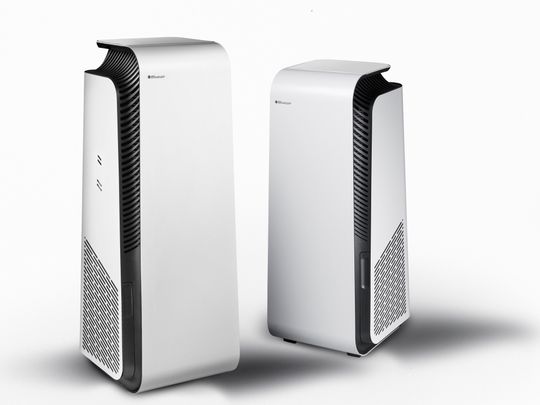
Sick days at school and work have been common in recent weeks as inclement weather batters the UAE and residents deal with a sudden onset of hay fever and asthma attacks. With occasional sandstorms, the situation remains difficult for those susceptible to atmospheric triggers.
Retreating indoors won’t help much – indoor air can be two to five times more polluted than outside air, according to the US Environmental Protection Agency. Combined with in-home risk factors such as dust mites and pet dander, attacks of allergic rhinitis could be more severe than usual, preventing people from living a normal life, going to work and school, enjoying time with family, or getting a decent night’s sleep.
The good news is that the symptoms of hay fever, also called allergic rhinitis, can be alleviated with a few simple steps.
VACUUM FREQUENTLY
Vacuuming is one of the most effective ways to remove allergens such as pollen, sand particles, dust, pet dander and the microorganisms they harbour. Use a vacuum cleaner with a bag to trap dust and prevent it from being re-released into the air, and one with a high-efficiency particulate air (HEPA) filter, as these remove at least 99.97 per cent of the ultra-small particles that cause health problems.
CLEAN THE AIR VENTS
Clean air vents at home regularly by vacuuming and wiping them down with a damp cloth and non-toxic cleaner. Consider professional air-duct cleaning for thorough cleaning with organic cleaning agents if you suspect that there is mould, insect or rodent infestation, or clogging.
PURIFY THE AIR YOU BREATHE
Indoor air is a cocktail of undesirable pollutants. Besides sandstorm-borne allergens, it contains cigarette smoke, emissions from paint and upholstery, air fresheners and particulate matter from cooking. Air purifiers remain the most efficient way to eliminate these pollutants. Blueair units use HEPASilent technology, which removes 99.97 per cent of all harmful particles in a room, so you can sleep well, wake up happy and remain focused all day even if you have hay fever.
Also, look for endorsements from health organisations. Blueair’s Classic models, for example, are recommended by Asthma Allergy Nordic, the association of allergy and asthma organisations, for those with hypersensitivity to allergens such as dust and pollen.
USE DUST MITE COVERS
Use protective dust mite covers on pillows, mattresses, and box springs to prevent dust mite from getting to their food source, to prevent their waste and body parts already in the mattress from becoming airborne, and to keep the mattress and pillows free from our sweat and the natural oils on our skin.
CONTROL TEMPERATURE AND HUMIDITY
Keep indoor temperatures under 21 degrees Celsius and relative humidity in your home below 50 per cent to make it difficult for dust mites to thrive. Common indoor air allergens fare badly in these conditions.
USE A WET CLOTH TO CLEAN SURFACES AND FLOORS
Allergens are essentially tiny and invisible particles flying around in the air. Like dust, many will eventually land on surfaces and floors. Instead of a feather duster, clean table tops and other surfaces with a damp cloth, and ensure you mop the floors often.
CHECK ALLERGY MAPS AND ADAPT YOUR ROUTINES
Monitor your allergy triggers via websites such as the government-recommended Plume Air Report, and Meteoblue.com, which track the air quality and pollen counts in Dubai and elsewhere in the UAE. Air pollution leads to more atmospheric particulate matter, and consequently a greater chance of allergies, so if you live in a big city you may want to avoid being outside in rush hour.
USE A CAR AIR PURIFIER
Commuters in the UAE may not realise the air in their cars can be up to 15 times more polluted than on the road outside. Poor indoor air quality is caused by vehicle exhaust – the car’s own and others’ – as well as tyre and road-wear products that enter through ventilation systems. During sandstorms, silica crystals may carry viruses, bacteria and dust mites, UAE experts say. An in-car air purifier with HEPASilent technology, such as Blueair Cabin Air, will filter 99.97 per cent of these impurities.
— The writer is Director — EMEA, Blueair













